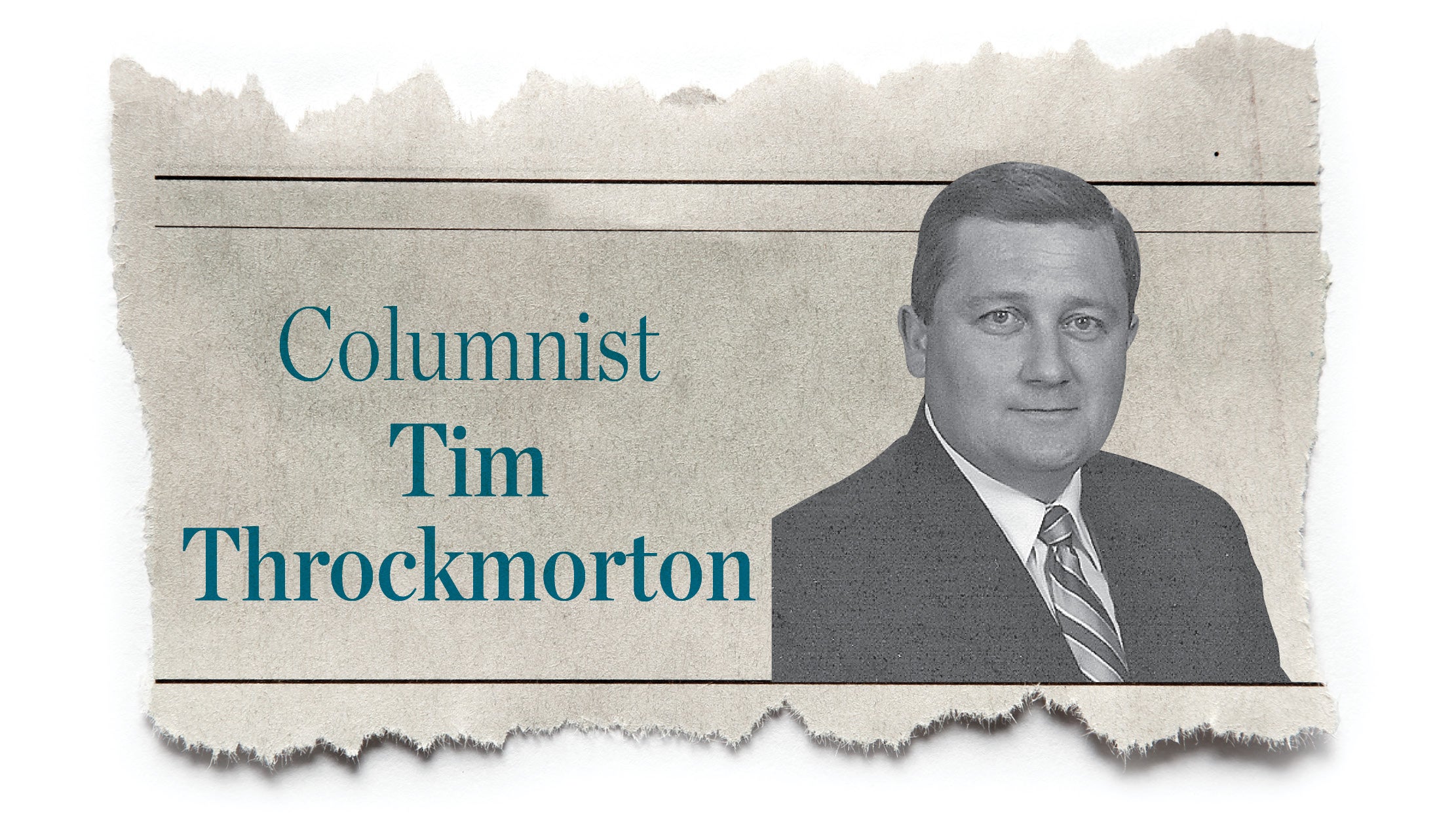Tim Throckmorton: Gambling can lead to a life of misery
Published 12:00 am Sunday, February 18, 2024
Mark Twain once observed, “There are two times in a man’s life when he should not speculate: when he can’t afford it, and when he can.”
While the Bible does not explicitly mention gambling, it does mention events of “luck” or “chance.”
As an example, casting lots is used in Leviticus to choose between the sacrificial goat and the scapegoat.
Joshua cast lots to determine the allotment of land to the various tribes.
Nehemiah cast lots to determine who would live inside the walls of Jerusalem. However, casting lots or gambling for personal gain is another thing altogether. It affects people, families, and society as a whole.
But how does the gambling industry affect society?
First, gambling leads to an increased crime rate.
Studies have shown that while casinos initially bring short-term economic benefits, property crimes take a sharp rise by the fourth year.
Second, gambling leads to addiction.
A survey done by two Duke University professors found that 10 percent of those who buy lottery tickets are compulsive gamblers who account for a whopping 50 percent of all money bet on lotteries.
It’s also been proven that people are twice as likely to become problem gamblers if a casino is located within fifty miles of their home.
Third, gambling leads to what we might call “a culture of destruction.” One survey of compulsive gamblers found that 22 percent had divorced because of gambling, 49 percent had stolen from an employer to pay gambling debts, and 79 percent said they wanted to die.
Ben Johnson, senior reporter and editor at The Washington Stand observed this week, “A record-breaking 115 million people watched the Kansas City Chiefs defeat the San Francisco 49ers in last night’s Super Bowl, the largest number in the 58-year history of the game.
The NFL showdown also set another record: Experts estimate an historic 67.8 million people gambled $23.1 billion on the game’s outcome — 44 percent higher than the previous record of $16 billion placed by 50.4 million people, set just last year, according to a survey from the American Gaming Association.
More than one out of every four Americans (26 percent) wagered money on the Super Bowl, a 35 percent increase in the number of U.S. gamblers, the survey stated…”
He continues, “An increasing number of children raised receiving quick hits of dopamine from video games have been getting caught in the web of online gambling. A whopping 60 percent to 80 percent of high school students say they have gambled for money in the last year, according to the International Centre for Youth Gambling Problems and High-Risk Behaviors.”
I remember hearing Chuck Swindoll say, “When testing comes, we get purified, but when prosperity comes, we get vulnerable.”
It was on Christmas morning in 2002, Jack Whittaker of Mt Hope West Virginia woke up to perhaps the biggest gift imaginable.
Whittaker had won the Powerball lottery jackpot, a whopping $315 million. It was a made-for-TV Christmas story and Whittaker’s hardworking family became celebrities overnight. Whittaker, his wife, Jewel, and granddaughter Brandi Bragg would become TV personalities.
But as Whittaker celebrated, he had no way of knowing the coming tragedy and the loss of everything he held dear.
Whittaker gave away at least $50 million worth of houses, cars, and cash. Suddenly, the man who won a fortune at Christmas had become everybody’s Santa Claus. Whittaker’s construction company he started had been doing $16-17 million in building, but less than a year after winning the lottery, the company’s success eroded under $3 million dollars in legal fees fending off over 400 lawsuits, because “everybody wants something for nothing.”
Whittaker began drinking heavily at the local bars to console himself and getting in fights over money.
The luckiest man in West Virginia was friendless and lonely. It seemed as if everyone wanted a piece of his winnings except the one person Whittaker wanted to give it to – his granddaughter, Brandi.
In time, Brandi started to use illegal drugs.
Whittaker repeatedly tried to get her help and sent her to several treatment programs, but she couldn’t stay clean.
“She doesn’t want to inherit the money; she just looks for her next drugs,” Whittaker said. “She said, ‘Pawpaw, all I care about is drugs.’ It broke my heart.” Almost two years after Whittaker hit the jackpot, Brandi disappeared.
After a frantic two-week search, on Dec. 20, 2004, she was found dead, wrapped in a plastic sheet, dumped behind a junked van.
The cause of death was listed as unknown.
Whittaker believes that the Powerball win had become a curse upon his family. “My granddaughter is dead because of the money,” he said.
In 2009, Brandi’s mother Ginger was found dead, too, in Daniels West Virginia, and added to these loses, Whittaker is being sued by Caesar’s Atlantic City casino for bouncing $1.5 million worth of checks to cover gambling losses.
But you know,” said the West Virginia Powerball winner, I just don’t like Jack Whittaker. I don’t like the hard heart I’ve got. I don’t like what I’ve become.”
Paul’s words to Timothy ring true for us today!
“For the love of money is a root of all kinds of evil.
Some people, eager for money, have wandered from the faith and pierced themselves with many griefs.” It’s just not worth taking a chance!
Tim Throckmorton is the national director of Family Resource Council’s Community Impact Teams.
